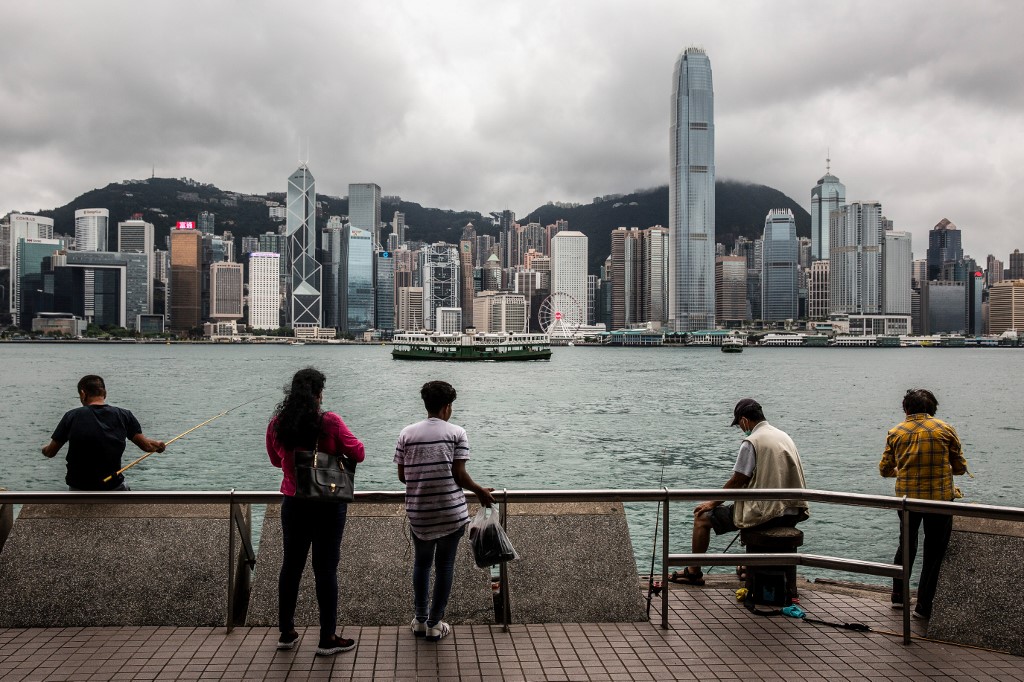American authorities formally notified Hong Kong on Wednesday that the United States has withdrawn from three bilateral deals with the semi-autonomous Chinese city on extradition and taxation.
The announcement follows President Donald Trump’s decision to revoke Hong Kong’s preferential trade status as Beijing clamped down on the territory over huge and often violent pro-democracy protests last year.
In July, Trump signed an executive order stipulating that Hong Kong lacked the autonomy needed to justify special treatment as compared with China.
“As part of the ongoing implementation measures, we notified the Hong Kong authorities on August 19 of our suspension or termination of three bilateral agreements,” the State Department said in a statement.
“These agreements covered the surrender of fugitive offenders, the transfer of sentenced persons, and reciprocal tax exemptions on income derived from the international operation of ships.”
“These steps underscore our deep concern regarding Beijing’s decision to impose the National Security Law, which has crushed the freedoms of the people of Hong Kong,” it said.
Beijing imposed the new national security law in response to last year’s pro-democracy protests.
It has described the law – its contents kept secret until it was enacted on June 30 – as a “sword” hanging over the heads of opponents in Hong Kong.
The law officially criminalises secession, subversion, terrorism and colluding with foreign forces.
But the broadly worded provisions outlawed certain political speech overnight, such as advocating sanctions, and greater autonomy or independence for Hong Kong.
HK property rules relaxed
In other news related to Hong Kong, the region’s banking regulator said on Wednesday it would relax commercial property mortgage rules, in a move to boost liquidity in a market that has been hit hard by US-China trade tensions, violent street protests last year and the coronavirus crisis.
The change lifts the cap on the loan-to-value ratio for banks providing mortgages for non-residential properties to 50% from 40%, effective from Thursday, Reuters reported.
Hong Kong Monetary Authority (HKMA) deputy chief executive Arthur Yuen told a press conference the change was designed to make it easier for the commercial sector to obtain mortgages.
Hong Kong’s commercial property market, the most expensive in the world, saw a drop in transactions in the first half, with prices of offices and retail premises dropping 15% and 10% respectively from the second half of 2019, and the pressure is likely to remain, the HKMA said.
“This will have a big psychological impact on the market,” said Dennis Cheng, senior sales director at Ricacorp (C.I.R.) Properties, of the rule change.
He expects a 20-30% rise in transactions in the next month because investors will not be required to put forward as much cash. However, he did not see a rise in prices, because of low rental yield expectations.
The HKMA tightened rules on mortgage loans several times after the financial crisis in 2009, amid a property price boom.
Alex Leung, a senior director of CHFT Advisory & Appraisal, said the relaxation would enable banks to rearrange loans to avoid the liquidation of some property owners, especially smaller investors.
AFP, Reuters
























